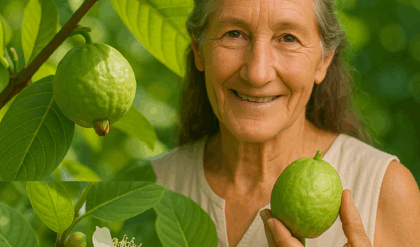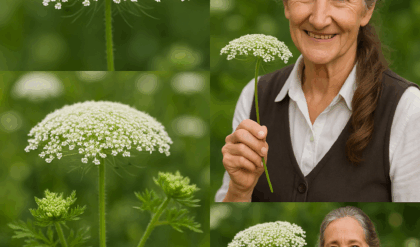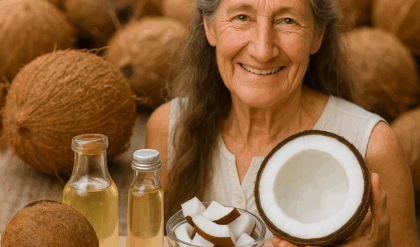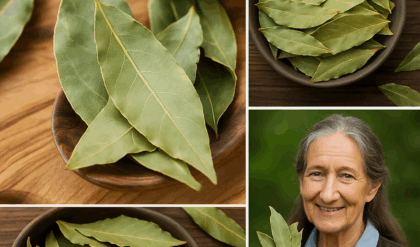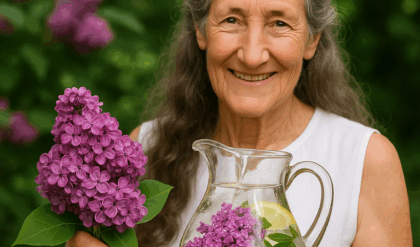✨ Imagine a single plant that can calm a relentless cough, relieve joint pain, and even support your bladder health—all without synthetic chemicals. That plant exists, and it might be growing quietly at the edge of a field near you. Its name is Mullein.
This towering wild herb, known scientifically as Verbascum thapsus, has soft, velvety leaves, bright yellow flowers, and a surprisingly wide range of traditional and modern uses. Long celebrated in herbal medicine, mullein offers powerful benefits for the lungs, joints, skin, and more. Let’s explore how each part of this plant—leaf, flower, and root—can become part of your natural wellness routine.
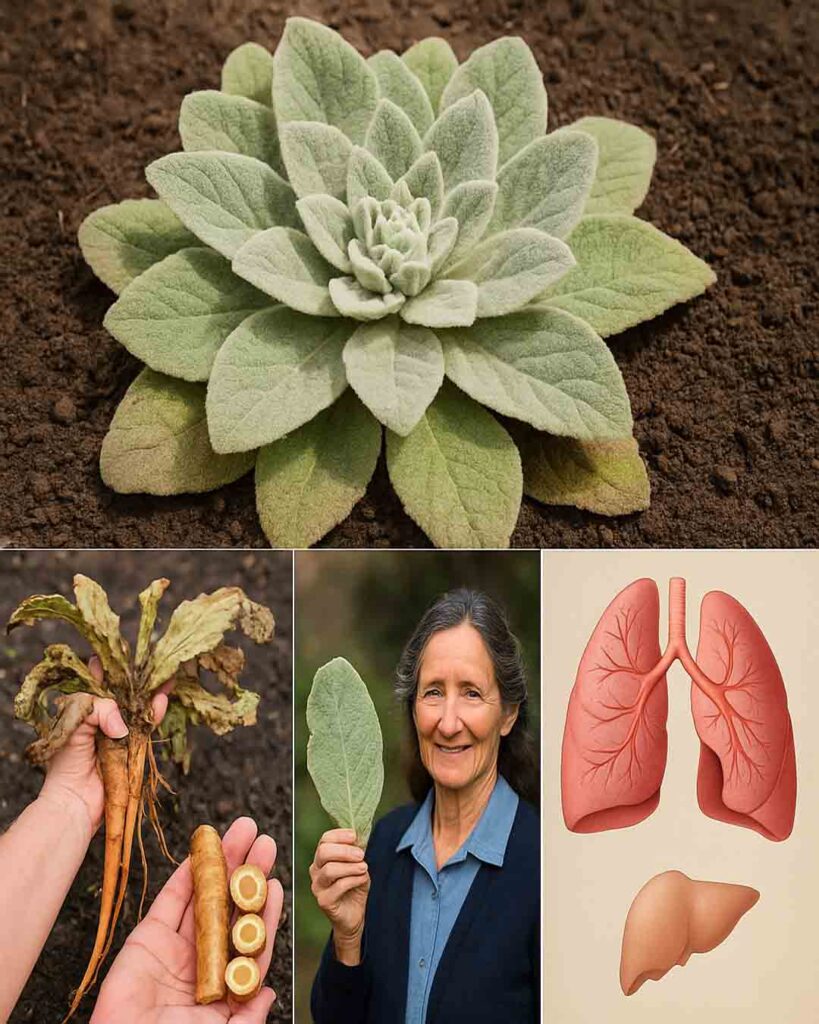
🌬️ Mullein Leaves: Nature’s Respiratory Soother
Mullein leaves are especially revered for their effects on the respiratory system. If you struggle with chronic cough, congestion, or bronchial irritation, this herb might become your new favorite tea.
✅ Supports Clear Breathing
The leaves help open the airways and act as a natural expectorant, loosening phlegm and making it easier to breathe.
✅ Reduces Inflammation
Whether it’s your lungs, throat, or digestive tract, the anti-inflammatory compounds in mullein leaves help calm irritation.
✅ Topical Wound Care
When crushed and applied as a poultice, the leaves aid in healing cuts, burns, and minor skin irritations.
✅ Relieves Joint Discomfort
Used externally, mullein leaf poultices can ease muscle aches and joint pain naturally.
✅ Gently Diuretic
Mullein leaf tea may support kidney health by promoting healthy fluid elimination without harsh side effects.
🍵 How to Use Mullein Leaves at Home
To make mullein tea, steep 1–2 teaspoons of dried leaves in boiling water for 10 to 15 minutes. Always strain carefully to remove fine hairs that may irritate the throat. Drink this tea once or twice daily for respiratory support.
For skin healing, crush fresh mullein leaves and apply them as a poultice to the affected area. Cover with a clean cloth and leave on for 20 to 30 minutes.
🌼 Mullein Flowers: Gentle and Healing
The soft yellow flowers of the mullein plant carry unique benefits of their own, especially when infused into oil or brewed into tea.
💧 Soothes Ear Infections
A traditional remedy for earaches involves mullein flower oil, gently warmed and applied in the ear to reduce pain and inflammation.
🌸 Eases Anxiety and Stress
A flower infusion creates a calming tea that helps relax the mind and body.
💪 Alleviates Muscle Tension
Massage with infused mullein flower oil can relieve tired, aching muscles and joints.
🛡️ Fights Microbial Threats
The antimicrobial effects of mullein flowers make them useful in combating skin infections and boosting immunity.
🌿 Promotes Skin Recovery
Apply flower-infused oil to small cuts and abrasions for gentle healing support.
💛 How to Use Mullein Flowers
For stress relief, steep 1 teaspoon of dried flowers in hot water for 10 minutes. Sip slowly and unwind.
To make earache oil, place fresh mullein flowers in a glass jar and cover with olive oil. Let the mixture sit in a warm, sunny spot for 2 to 3 weeks. Strain, store in a clean bottle, and use 1–2 drops in the affected ear.
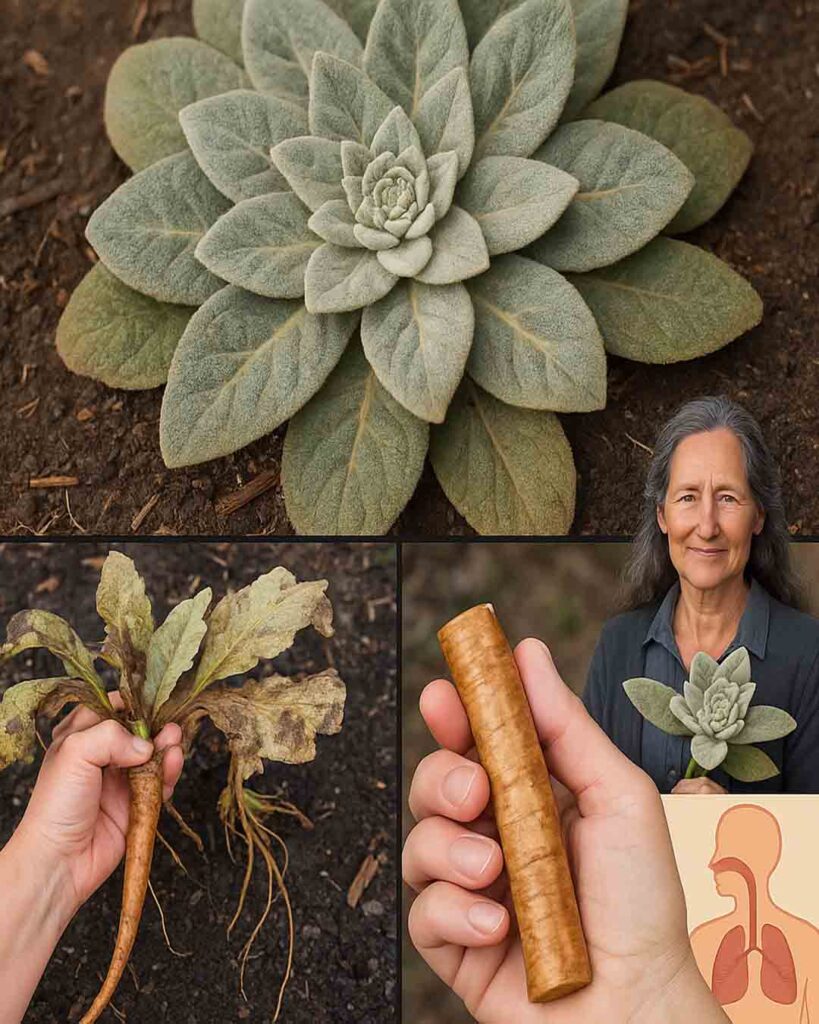
🌱 Mullein Root: The Forgotten Hero
While the leaves and flowers are more commonly used, the root of the mullein plant offers impressive support for joints, the bladder, and the lymphatic system.
🦴 Supports Joint Flexibility
Mullein root tea is often used to relieve stiffness and pain associated with arthritis or injury.
🛁 Back Pain Relief
Herbalists have long turned to mullein root to soothe lower back discomfort and nerve-related pain.
💧 Strengthens Bladder Function
Drinking mullein root tea may help with incontinence and bladder weakness, especially in older adults.
🌿 Lymphatic Cleanser
The root encourages natural detoxification by supporting lymphatic drainage and reducing swelling.
☕ How to Use Mullein Root
Simmer 1 teaspoon of dried mullein root in 1 cup of boiling water for 15 to 20 minutes. Strain and drink up to twice a day for joint or bladder support.
For a root poultice, mash the fresh root and apply directly to sore or inflamed areas. Wrap with a cloth and leave on for 30 minutes before rinsing.
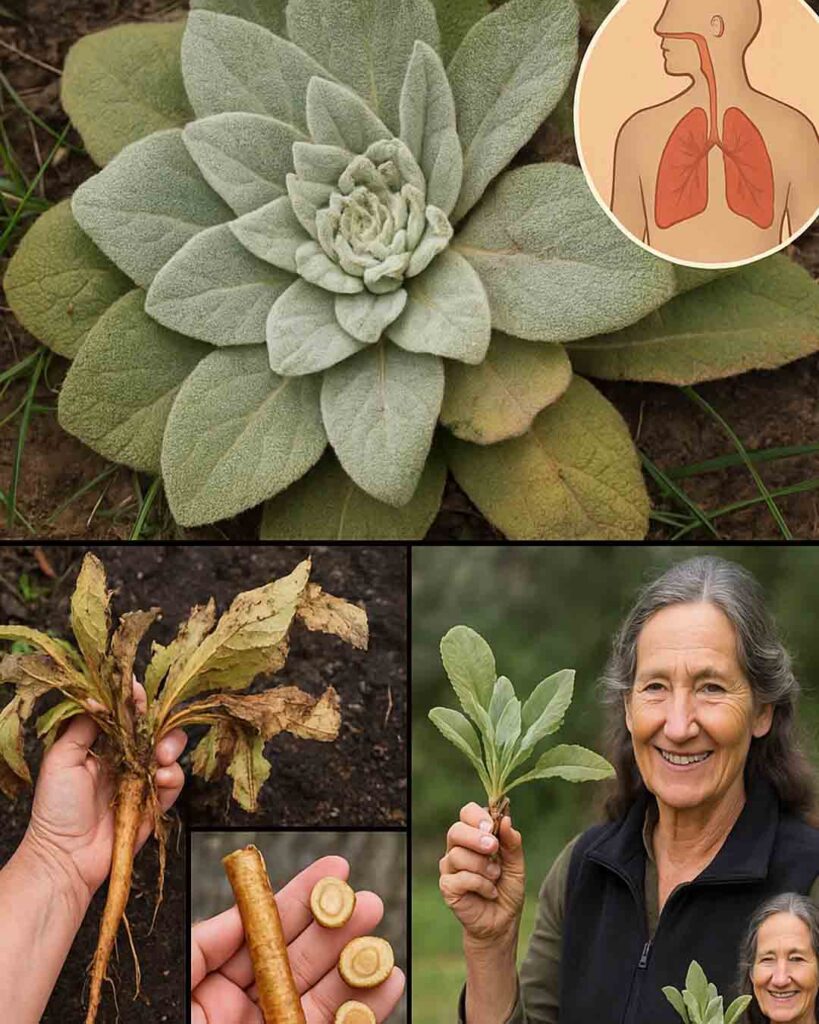
🧠 Why Mullein Deserves a Spot in Your Wellness Routine
The beauty of mullein lies in its balance. It’s potent enough to provide real relief, yet gentle enough for regular use when prepared correctly. From fighting infections to calming a stressed mind, mullein supports both physical and emotional wellness.
🌿 Its multipurpose nature also makes it ideal for those seeking holistic, natural approaches to health without relying on synthetic drugs. As a bonus, mullein grows wild in many regions, making it accessible and affordable.
🔒 Safety Tips Before Use
Although mullein is generally safe, there are a few important notes:
● Always strain teas thoroughly to avoid ingesting plant hairs
● Pregnant or nursing women should consult a healthcare provider before use
● Start with small amounts to monitor your body’s response
🌼 Final Thoughts
Mullein is more than a towering wildflower. It’s a time-tested herbal remedy offering powerful support for the lungs, joints, bladder, skin, and more. Whether sipped as tea, applied as an oil, or prepared as a poultice, mullein can easily become a cornerstone of your home remedy cabinet.
Add this humble herb to your natural health routine and discover why mullein has stood the test of time.
💬 Inspired by this? Share the article with a friend or bookmark it for your own journey toward better health.

